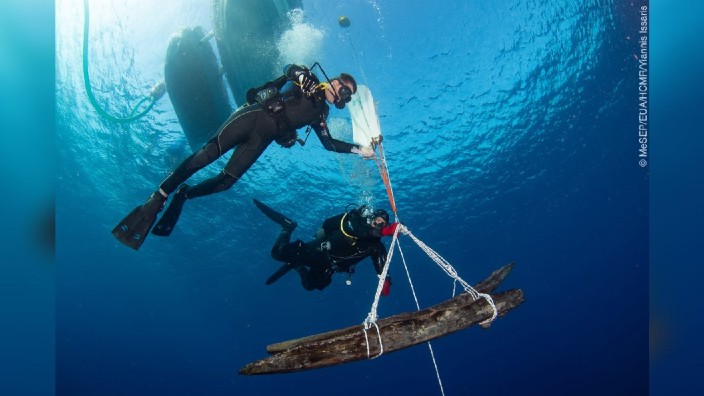The latest expedition by divers to the wreck of the Mentor, which sank just off the island of Kythera in 1802, has recovered several new artefacts. This includes the ship’s rigging, coins, the leather sole of a shoe, a metal buckle, a token for playing cards, two chess pieces and fragments of cooking utensils.
When Mentor sank, the ship was carrying marble sculptures chipped from the badly damaged Parthenon in Athens — later known as the Parthenon Marbles. These spectacular sculptures — which depict Greek gods, heroes and animals — are now on display at the British Museum in London.
READ MORE: Parthenon Marbles among artefacts being examined by British Museum’s new curator.
But according to marine archaeologist, Dimitris Kourkoumelis, of the Ephorate of Underwater Antiquities in Greece, these small objects recovered from the wreck reveal intriguing aspects of the lives of the people onboard the ship when it sank.
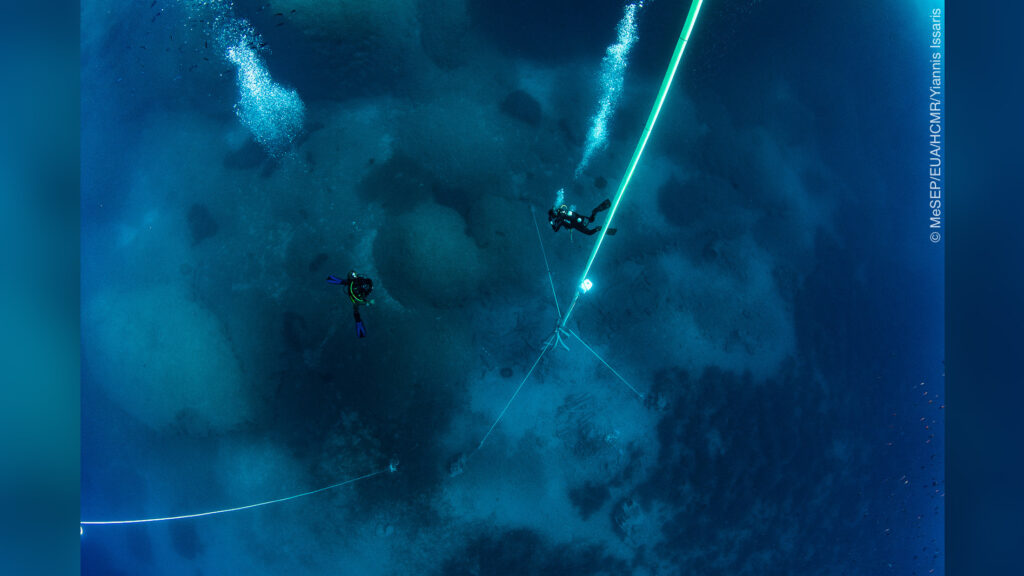
“The target is to understand how people were living and how life was onboard, not only for the passengers but also for the crew,” Kourkoumelis told Live Science.
“We’ve found gold coins from Utrecht in Holland, as well as from Spain, and also coins from the Ottoman Empire — so it was really a cosmopolitan group [of people] on the Mentor.”
READ MORE: On this day in 1801, Lord Elgin removed and stole the Parthenon Marbles from Greece.
Kourkoumelis has led diving expeditions to the wreck of the Mentor every summer since 2009, after the Greek government enacted legislation to protect the shipwreck and formally ordered state archaeologists to excavate it.
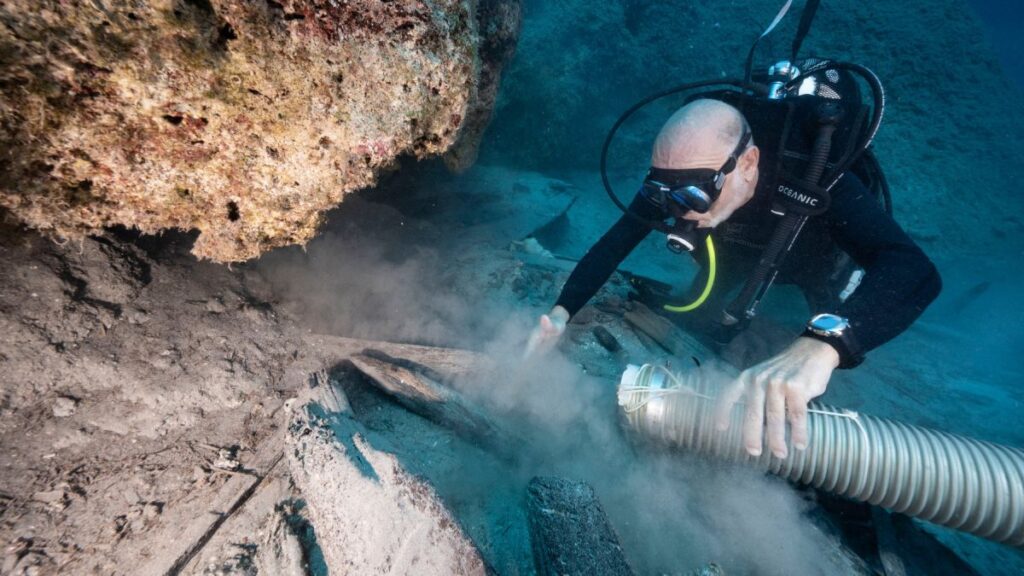
The construction of the Mentor is very different from that of similar ships built in the Mediterranean, Kourkoumelis says.
“The American ships were built to travel in the open ocean and so they were much stronger — it’s very interesting to work on a ship like that,” he said.
READ MORE: Australia takes the lead in demanding the return of the Parthenon Marbles to Greece.
The wooden vessel is now rotting away after more than 200 years under the waves, and only a few more years of excavations will be possible, he added.
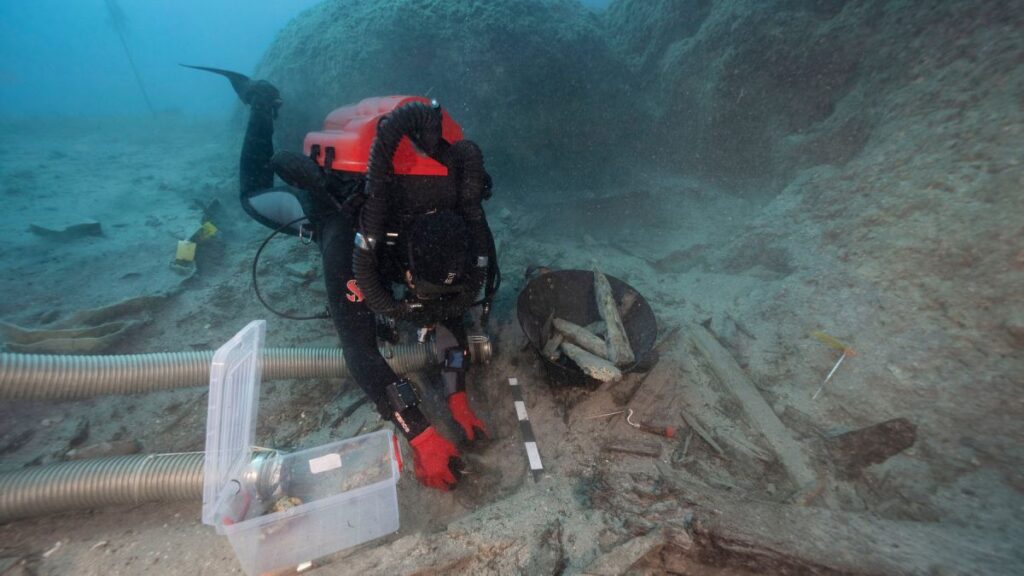
Besides the Parthenon Marbles, no more items from Elgin’s collection have ever been found. However, Kourkoumelis told Live Science that the wreck has yielded numerous other small objects over the years, including gold jewelry, ancient coins and Greek pottery that probably came from the private collections of some of the passengers onboard when it sank.
The most recent finds last year included two wooden chess pieces — another six pieces from the same set were found in previous years — and a metal token or coin that was probably used in a card game.
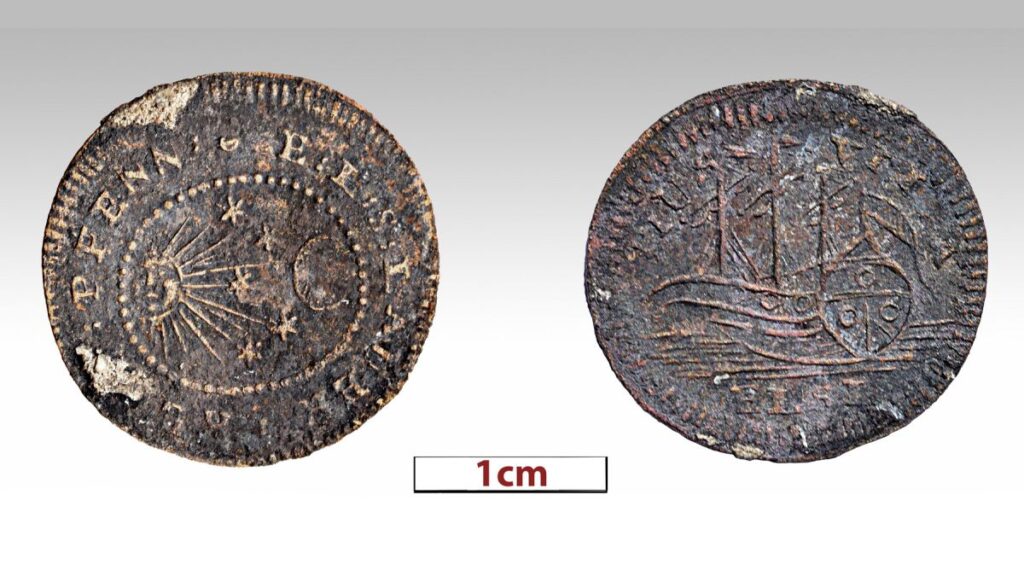
Archaeologists plan to scientifically examine all of the items, many of which will be displayed at the Acropolis Museum in Athens, Kourkoumelis said. The museum already displays about half of the Parthenon sculptures that remain, and it has space reserved for the remaining Parthenon Marbles if they are ever returned to Greece.
READ MORE: An architectural story worth knowing: The Acropolis museum.
“We are excavating the ship that is associated with one of the most painful episodes of the recent history of Greece,” Kourkoumelis told Live Science.
“I think it is very important to show that we are not only asking for things, but we are working for the protection of everything that is involved.”
Source: Live Science.

